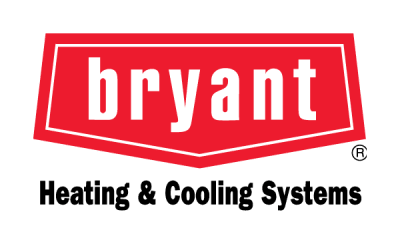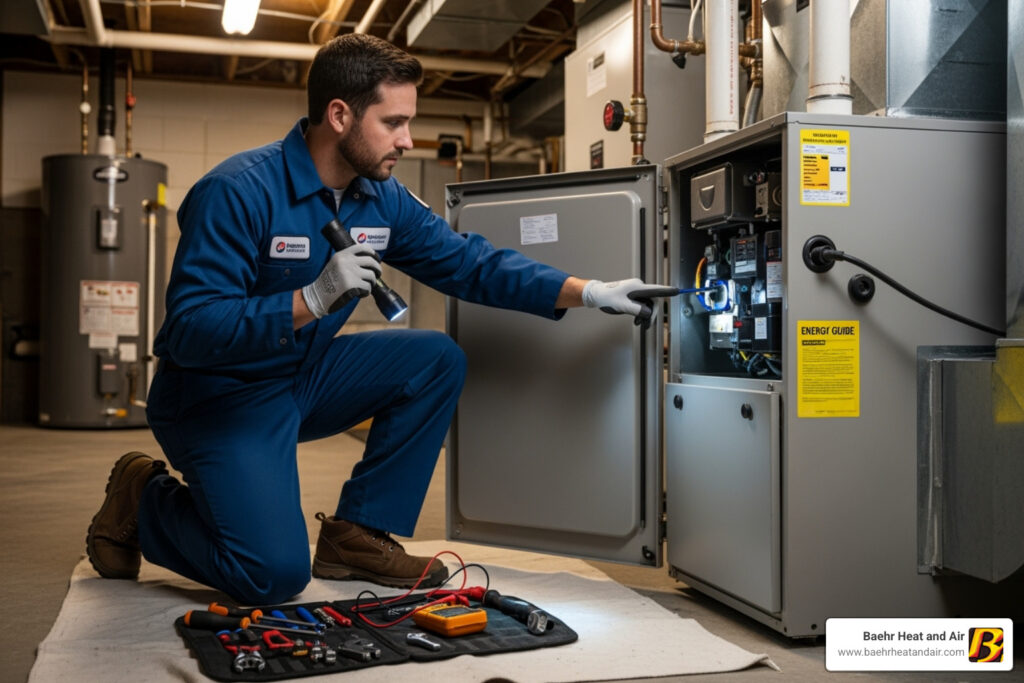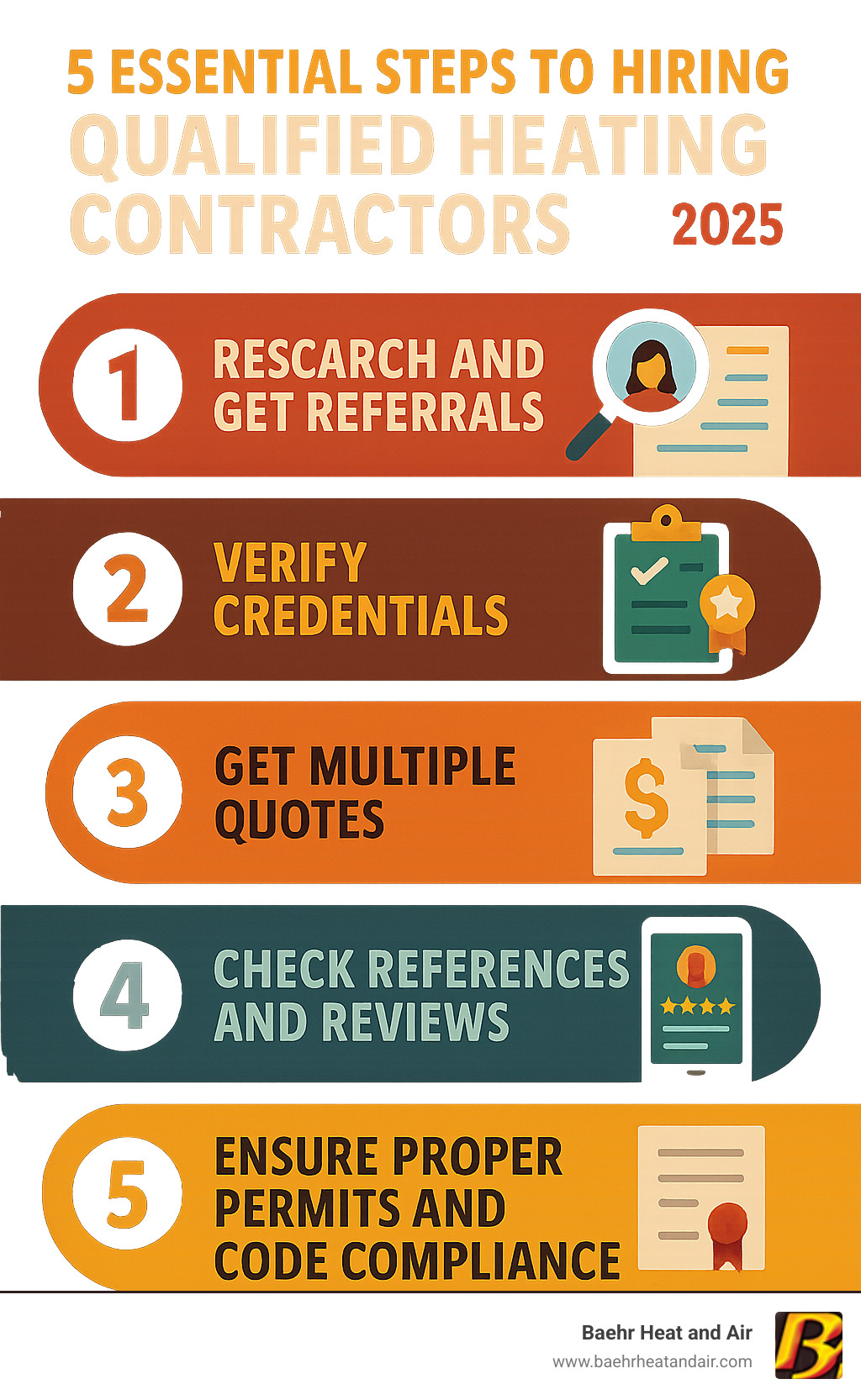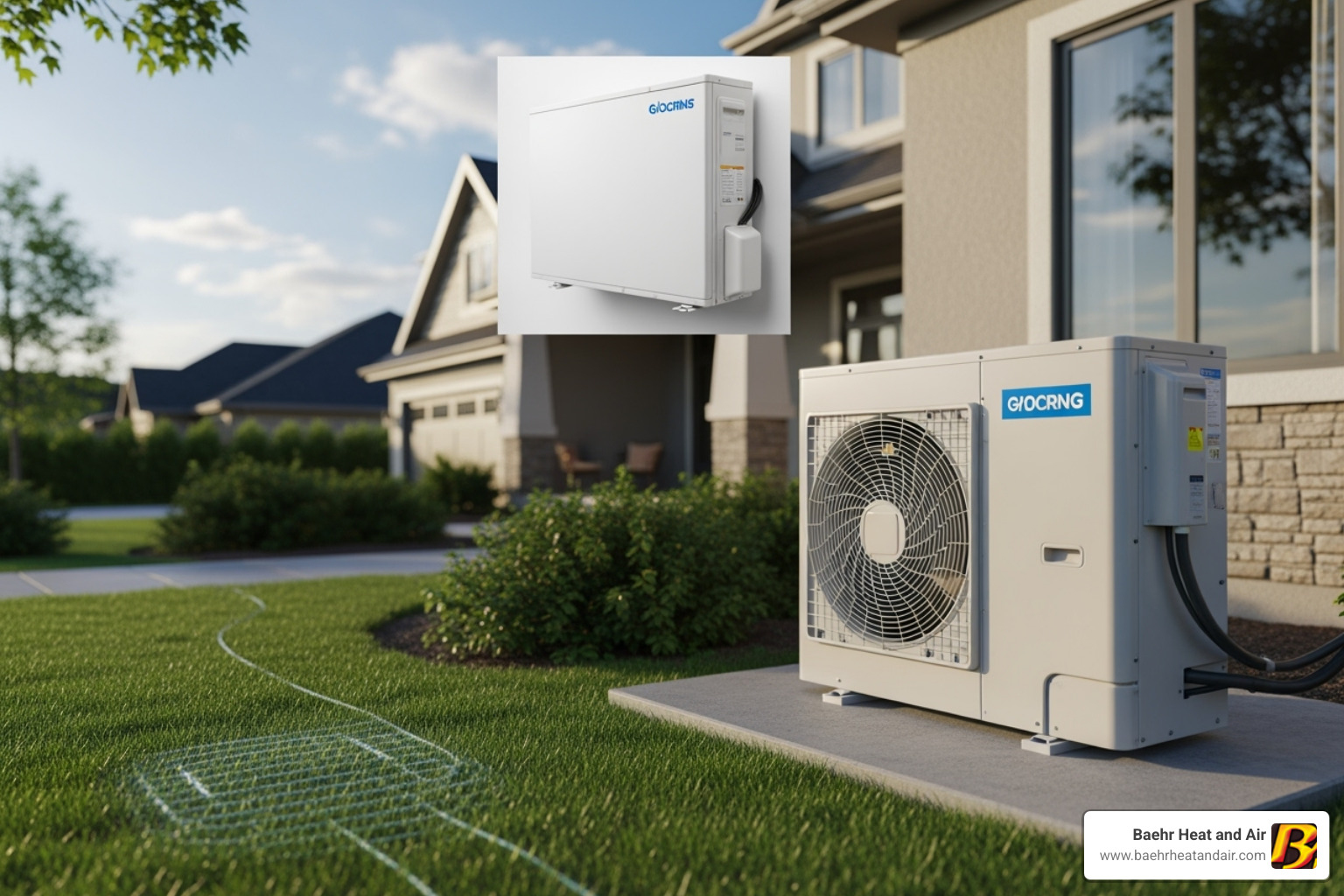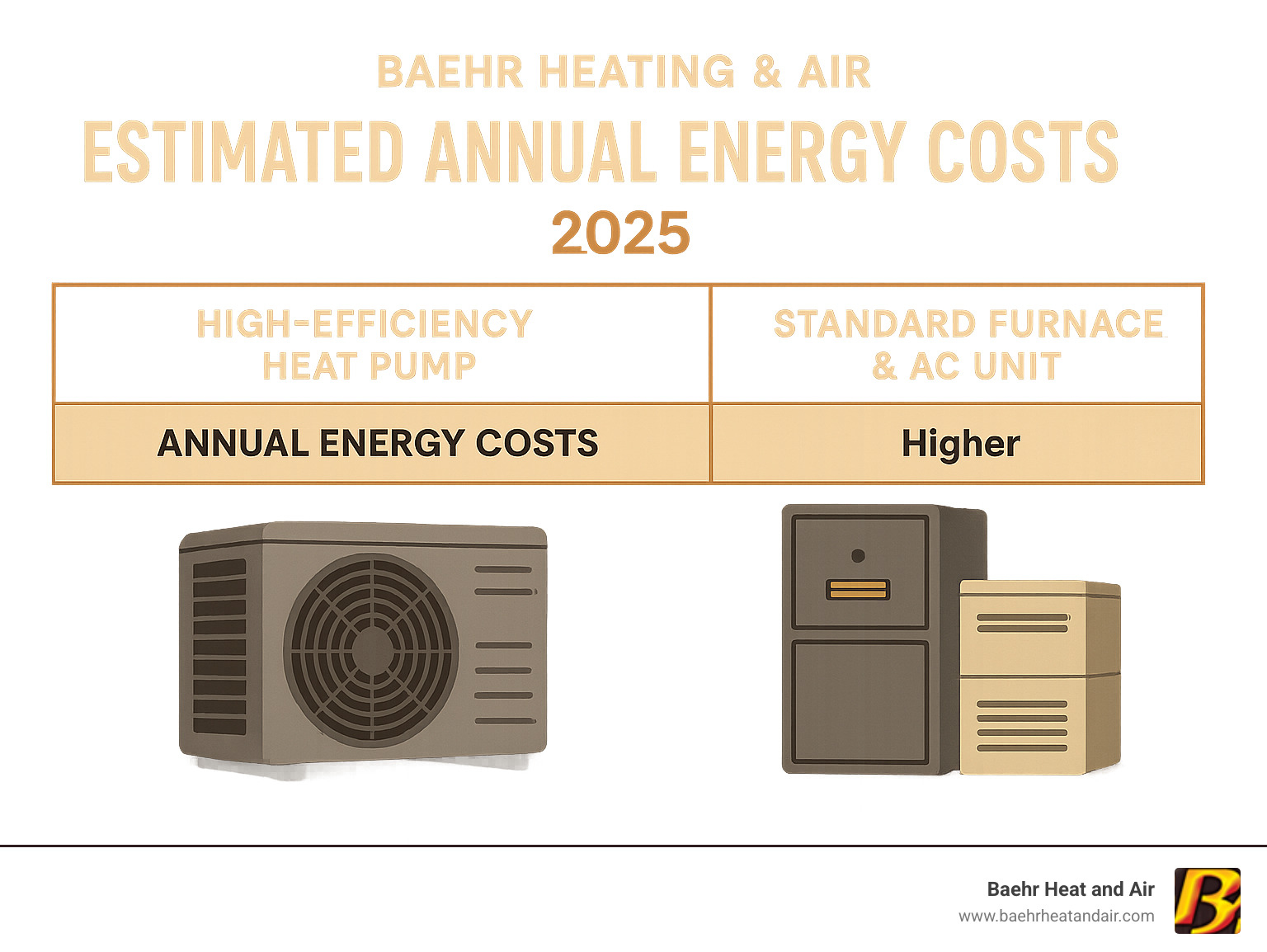Why Finding the Right Heat Contractors Makes All the Difference
Heat contractors are HVAC professionals specializing in the installation, repair, and maintenance of heating systems like furnaces and heat pumps. When your system fails or energy bills soar, finding the right contractor is critical. The difference between a skilled professional and an unqualified technician can impact your comfort and finances for years.
Key Steps to Find Quality Heat Contractors:
- Verify licensing and insurance – Ensure they’re properly licensed in your state.
- Check NATE certification – Look for North American Technician Excellence credentials.
- Get multiple quotes – Compare at least three detailed, itemized estimates.
- Ask for references – Contact recent customers and check online reviews.
- Confirm they pull permits – Professional contractors always follow local codes.
With a growing HVAC market, finding qualified professionals is challenging, leading many homeowners to choose based on price alone—a decision they often regret. This guide will help you understand modern heating systems, vet contractors, and steer the installation process. You’ll learn to spot red flags and ask the right questions to protect your comfort and wallet.
Understanding Modern Heating Systems and Heat Pumps
Unlike traditional furnaces that burn fuel, modern heat pumps move heat from one place to another. In winter, a heat pump extracts warmth from the outdoor air and transfers it inside. In summer, it reverses the process, acting as an air conditioner by moving heat from your home to the outdoors.
This process makes heat pumps highly energy efficient. It requires less energy to move heat than to generate it, allowing heat pumps to deliver three to four times more energy than they consume. This efficiency leads to lower utility bills and a reduced carbon footprint, making them a great choice for environmental sustainability.
When we compare heat pumps to traditional furnaces, the efficiency difference is stark. A high-efficiency gas furnace converts about 95% of its fuel to heat, while a heat pump can achieve efficiency ratings of 300-400%. For a detailed breakdown, see our guide on Choosing Between an AC and Heat Pump. This dual-function system provides seamless, Year-Round Comfort with Heat Pumps.
Types of Heat Pumps for Your Home
Selecting the right heat pump depends on your home’s needs. Your heat contractors will help you choose the best option.
- Air-source heat pumps are the most common type, drawing heat from the outdoor air. They are effective in most climates, including those with cold winters, thanks to modern technology.
- Ductless mini-split systems are ideal for homes without existing ductwork or for creating zoned heating and cooling. Each indoor unit operates independently, offering personalized comfort. Learn about the Benefits of Mini Split Heat Pumps and their Installing Mini Split Heat Pumps.
- Geothermal systems use the stable temperature of the earth to transfer heat. They have a higher upfront cost but offer exceptional efficiency and a very long lifespan.
- Heat Pump Water Heaters (HPWH) use the same principle to heat your water, pulling warmth from the surrounding air. They are far more efficient than standard electric water heaters.
Heat Pump Performance in Different Climates
Modern cold climate technology has made heat pumps effective even in freezing temperatures. Advanced models use variable-speed compressors that adjust their output to match the home’s heating or cooling needs precisely, saving energy and improving comfort.
For extreme cold, heat pumps can use supplemental heat options, like electric resistance coils, as a backup. However, the heat pump does the vast majority of the work to keep energy costs low.
Understanding efficiency ratings is key. SEER2 measures cooling efficiency, while HSPF2 measures heating efficiency—higher numbers mean greater savings. These updated ratings better reflect real-world performance. Additionally, IoT integration allows for smart controls, enabling your system to self-diagnose issues or adjust to your routine, making HVAC systems smarter than ever. For more on this, see our guide on Features to Look For AC Installation.
How to Find and Vet Qualified Heat Contractors
Finding the right heat contractors is a crucial investment in your home’s comfort and efficiency. A quality installation prevents costly repairs and ensures reliable performance for years.
Start your search with online searches for “heat contractors near me” or more specific terms like “heat pump installation Grass Valley CA.” However, local referrals from friends, neighbors, and community groups often provide the most honest feedback. You can also use manufacturer locators from brands like Ruud or Carrier to find certified installers, or check energy program directories for contractors qualified to handle rebates and incentives.
Once you have a list, the vetting process is essential. Even the best equipment will underperform if installed incorrectly. Our guide on choosing the Right HVAC Contractor offers more detailed advice.
Key Credentials to Look For in Heat Contractors
When evaluating contractors, verify these qualifications:
- Licensing and Insurance: A legitimate contractor must have the proper state and local licenses. They should also carry both liability and worker’s compensation insurance. Ask for current certificates.
- NATE Certification: North American Technician Excellence (NATE) certification is the industry’s gold standard, signifying that a technician has passed rigorous, real-world tests.
- Industry Associations: Membership in groups like ACCA (Air Conditioning Contractors of America) shows a commitment to quality standards and ongoing education.
- Positive Reviews and References: Check Google, the Better Business Bureau, and other platforms for consistent positive feedback. A confident contractor will also provide recent customer references. We are proud of our Reviews and believe transparency builds trust.
- Years of Experience: An established company has a proven track record of handling various installation challenges and building a solid reputation.
Red Flags When Hiring a Contractor
Be wary of these warning signs to avoid major headaches:
- High-Pressure Sales Tactics: Avoid contractors who push for immediate decisions with “today-only” offers. A professional will give you time to consider your options.
- Vague or Cash-Only Quotes: A professional estimate is itemized with breakdowns for equipment, labor, and permits. Insisting on cash can be a way to avoid accountability.
- Lack of a Physical Address: A contractor operating only from a truck or P.O. box can be hard to find for follow-up service or warranty work.
- Inability to Provide Credentials: If a contractor hesitates to show their license, insurance, or certifications, move on.
- Poor Communication: If they are unresponsive or unclear before the job starts, communication will likely not improve.
- Refusing to Pull Permits: Permits ensure the installation meets safety and code requirements in areas like Grass Valley and Nevada City. Skipping this step is a major red flag that can put your home at risk. Proper installation prevents most Common Heater Repair Issues.
The Installation Process: From Quote to Comfort
After selecting potential heat contractors, the process moves to planning and execution. A professional installation ensures your new system is perfectly matched to your home and installed to the highest standards.
The process starts with an initial consultation and home assessment. An experienced contractor will evaluate your home’s size, insulation, windows, and ductwork. This is essential for accurate system sizing, which involves industry-standard load calculations (Manual J and Manual S). Manual J determines your home’s heating and cooling needs, while Manual S selects the correctly sized equipment. Proper sizing is vital for efficiency, comfort, and system longevity.
Based on this data, your contractor will guide you through system selection, considering the heat pump type, efficiency ratings (SEER2, HSPF2), and smart features. Our goal is to provide solutions that deliver quality, trust, and savings. Learn more about our Process of Heat Pump Installation.
Getting and Comparing Quotes from Heat Contractors
Always get itemized quotes from at least three different heat contractors to compare not just the price, but the specifics of what’s included.
Key questions to ask each contractor:
- What specific equipment models and efficiency ratings are included?
- What is the total cost, broken down into equipment, labor, and materials?
- Are there potential additional costs (e.g., electrical work, permits)?
- What are the warranty details for equipment and labor?
- What is the estimated installation timeline?
- Will you handle all necessary permits and inspections?
- What are your payment terms and financing options?
- Can you provide recent, relevant references?
- What post-installation support or maintenance plans do you offer?
When comparing quotes, look for value over the lowest price. A cheap quote may indicate cut corners. A good quote combines reputable equipment, professional installation, and comprehensive warranties. You can Request Estimate from us to get started.
Preparing Your Home for Installation
To ensure a smooth installation day, you can prepare your home for the arrival of your heat contractors.
- Clear the Work Area: Move furniture and personal items from the indoor and outdoor unit locations (attic, closet, yard).
- Ensure Access: Make sure your electrical panel is easily accessible.
- Plan for Ductwork: For ducted systems, ensure access to existing ductwork. For ductless systems, clear walls where indoor units will be mounted.
- Be Available: It’s helpful to be home to answer questions and provide access as needed.
These simple steps help the installation proceed efficiently. For a more detailed checklist, see our Guide to Heating Installation.
Costs, Savings, and Incentives
While a new heat pump may have a higher upfront cost than a traditional system, it’s an investment that pays off over time. Heat pumps are highly energy-efficient, leading to significantly lower monthly utility bills and a strong return on investment (ROI).
Here’s how high-efficiency heat pumps compare to standard furnace and AC combinations:
| Category | High-Efficiency Heat Pump | Standard Furnace & AC Unit |
|---|---|---|
| Annual Energy Costs | Significantly Lower | Higher |
| Environmental Impact | Lower Carbon Footprint | Higher Carbon Footprint |
| Comfort Consistency | Excellent (even heating/cooling) | Good (can have temperature swings) |
| Maintenance Needs | Regular, but often simpler | Regular, but separate systems |
Experienced heat contractors can provide realistic savings projections for your home. To make the investment more manageable, we offer flexible HVAC Financing Grass Valley CA options.
Understanding Installation and Maintenance Costs
Several factors influence the total cost of a heat pump installation:
- System Size and Type: Larger homes need higher-capacity units. Geothermal systems have higher initial costs due to excavation, while air-source and ductless systems are generally less expensive to install.
- Labor Complexity: Installations may require new ductwork, electrical upgrades, or other modifications, especially in older homes.
- Brand and Features: Premium brands and advanced features like variable-speed technology or smart controls cost more but often provide superior performance and longevity.
For more details, visit our Heat Pump Installation Grass Valley CA page.
Beyond installation, regular maintenance is crucial. A maintenance plan helps prevent breakdowns, extends your system’s lifespan, and maintains peak efficiency, saving you money on costly emergency repairs. Learn more about our plans at HVAC Maintenance Grass Valley CA.
Maximizing Savings with Rebates and Tax Credits
Numerous rebates and tax credits can significantly reduce your out-of-pocket cost for a new, energy-efficient heat pump.
- Federal Tax Credits: The U.S. government often provides tax credits for qualifying high-efficiency heating and cooling equipment. These credits directly reduce your tax liability.
- State and Local Utility Rebates: In California, programs like TECH Clean California and local utility incentives offer cash rebates and other benefits for heat pump installations.
Your heat contractors should be your primary resource for navigating these incentives. An experienced contractor stays current on available programs and can guide you through the application process, often assisting with the paperwork to ensure you don’t miss out on savings. When getting quotes, always ask about available incentives. We also offer Heat Pump Replacement Financing Grass Valley CA to help you manage your investment.
Frequently Asked Questions about Heating Systems
Here are answers to some of the most common questions we hear from homeowners in Grass Valley, Nevada City, and North Auburn when they’re considering their heating systems and working with heat contractors.
How do I know if I need a heat pump repair or replacement?
Deciding whether to repair or replace your heat pump depends on several factors. Look for these common signs that it might be time for a replacement:
- System Age: Most heat pumps have a lifespan of 10-15 years. If your system is approaching this age, replacement is often more cost-effective than a major repair.
- Rising Energy Bills: A sudden or steady increase in your heating costs can indicate declining efficiency.
- Frequent or Costly Repairs: If repair bills are piling up, that money may be better invested in a new, reliable system.
- Inconsistent Heating: Uneven temperatures or the inability to keep your home comfortable are signs of a failing system.
- Strange Noises: Grinding, clanking, or excessive rattling are distress calls that signal serious mechanical problems.
A qualified heat contractor can provide an honest assessment to help you decide if it’s Time for Furnace Replacement (or heat pump replacement).
What is a Manual S calculation and why is it important?
Manual S is the ACCA standard for selecting the right size HVAC equipment. It follows Manual J (which calculates your home’s heating/cooling load) to ensure your new system is perfectly matched to your space.
Proper sizing is critical because an oversized system will short-cycle (turn on and off too frequently), wasting energy and causing premature wear. An undersized system will run constantly without adequately heating your home. A correctly sized system, determined by Manual S, improves comfort, efficiency, and system lifespan. This is a key step that professional heat contractors never skip. For more details, see What is Manual S?.
What services do heating contractors typically offer?
Professional heat contractors are long-term partners for your home’s comfort. Their services typically include:
- Installation: Professional setup of new heating systems, including proper sizing, ductwork, electrical connections, and system testing.
- Repair: Diagnosing and fixing issues, from simple thermostat problems to complex component failures.
- Maintenance: Regular tune-ups, inspections, and cleaning to prevent major problems, maintain efficiency, and keep warranties valid.
- Consultation: Expert advice on system options, energy efficiency upgrades, and long-term planning.
- Ductwork Services: Inspecting, cleaning, repairing, and sealing ductwork to ensure optimal airflow.
- Indoor Air Quality Solutions: Offering air purifiers, humidifiers, and ventilation systems for a healthier home environment.
Good heat contractors provide comprehensive support to keep your home comfortable and efficient. See a full list of All of Baehr Heating Air’s Services.
Secure Comfort & Savings: Hire Qualified Heat Contractors
Finding the right heat contractors is a critical investment in your home’s comfort, energy bills, and long-term value. By understanding modern heat pumps, thoroughly vetting contractors, comparing detailed quotes, and taking advantage of available incentives, you can make a confident and informed decision.
A professional installation by experienced heat contractors ensures your equipment performs optimally for years, keeping your energy costs low and providing the reliable comfort your family deserves. The quality of the installation is just as important as the quality of the equipment itself.
At Baehr Heat and Air, we are committed to transparency and quality. We proudly serve families in Grass Valley, Nevada City, and North Auburn, CA, delivering reliable, efficient home comfort without surprises. Whether you need to repair an aging system or are ready to upgrade to a modern heat pump, we are here to help you find the best solution for your home and budget.
